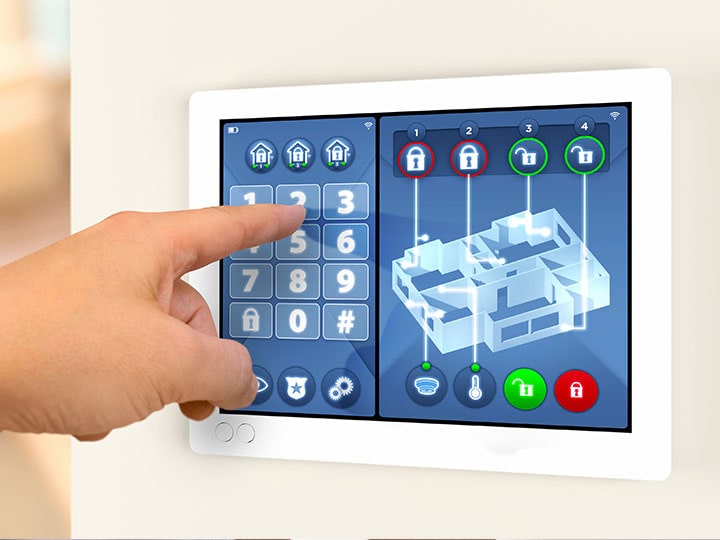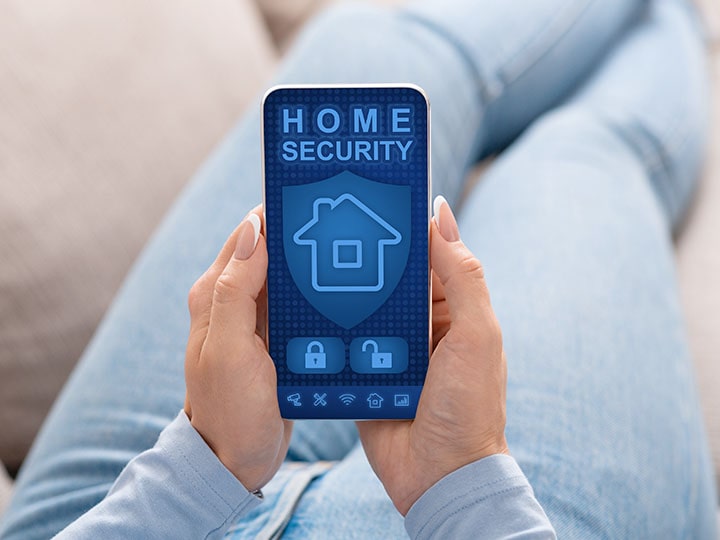Do You Know How Your Alarm System Communicates?
*Updated June 2023.
What is alarm monitoring?
One of the most sought-after features for residential and commercial security systems is 24/7 alarm monitoring. Monitored security systems are connected to a central monitoring facility with staff who review tripped alarms, verify emergencies, and contact relevant emergency services. Monitors generally reach at least two phone numbers connected to a residence or business to alert a homeowner or employer of the tripped alarm system. If no point of contact is reached, the monitor will immediately contact emergency personnel and request that they address the potential issue.
Alarm monitoring services are not required for your security system but are strongly recommended. Your alarm system is a solid line of defense against intruders or other issues, but monitoring elevates the level of protection for your home or office by giving you around-the-clock security measures that work just as well when you’re away.
How do alarm systems communicate with monitoring companies?
Monitoring is a dependable and helpful service, but its semantics are not always understood. For monitoring to be effective, your alarm system must communicate directly and efficiently with the alarm monitoring company. Many alarm systems have various communication configurations, each with specific benefits and drawbacks. Knowing how your alarm system communicates could significantly impact the overall effectiveness of your system and its 24/7 monitoring capabilities.
Four ways alarm systems communicate with monitoring companies
The telephone landline is the original form of communication for telephones and alarm systems. This monitoring method connects a business or home’s telephone line to the alarm panel to communicate signals. While this type of communication has been tested and confirmed, technological advances have spurred weaknesses in landline-based alarm systems. Potential thieves could easily cut a phone line, leaving your business or home vulnerable. Because the technology is significantly outdated compared to newer options, landline connections are often viewed as a last resort.
Broadband internet is a newer and far more flexible communication type. The alarm panel typically connects directly to your home or business Wi-Fi network to access the internet. This option has gained popularity due to its lower costs and ease of installation and use. Unfortunately, an internet connection can sometimes be unstable, and a clever intruder could sever an internet cable to disconnect your alarm from its monitoring service. Also, if your panel and Wi-Fi setup lack a battery backup, a power outage would render your system and monitoring services useless.
This communication method transmits information through wireless signals and is steadily gaining popularity. One of the significant benefits of choosing a cellular alarm system is that it is far less vulnerable to tampering or inconsistencies. An intruder cannot sever a wireless signal, and most models include battery backups to maintain function if your home or office building loses power.
Before committing to a cellular system, homeowners and employers should note their potential system’s specific wireless transmission specifications. If you decide to invest in a cellular alarm system, purchase a brand or model that uses LTE wireless data instead of 3G or other older technology methods. Older wireless technologies are constantly being phased out, so any technology older than LTE could become unusable. Today’s LTE wireless technology is designed to be updated, so it is likely to remain viable.
This is the latest and greatest technology for alarm monitoring communication. It combines internet and cellular signals and chooses the faster, more reliable connection path that is available at the time of need. This type of alarm system typically relies on its internet connection as a primary path since it can transmit more data faster. The cellular connection is available as a backup if the system’s internet connection or power supply experiences disruptions. If the internet connection performs slower than the cellular connection, the system can change its primary method to accommodate any issues with communication.
How do I choose?
Finding the right security system and monitoring service for your residence or business can be difficult. When selecting an alarm monitoring communication method, consider all your options and think holistically about your security needs. If you need help finding the right solution, the security professionals at FSS Technologies are experts on the cutting-edge security technology required to protect your home or business.












